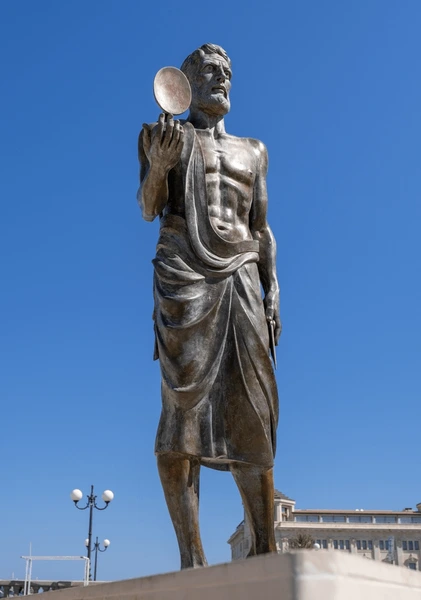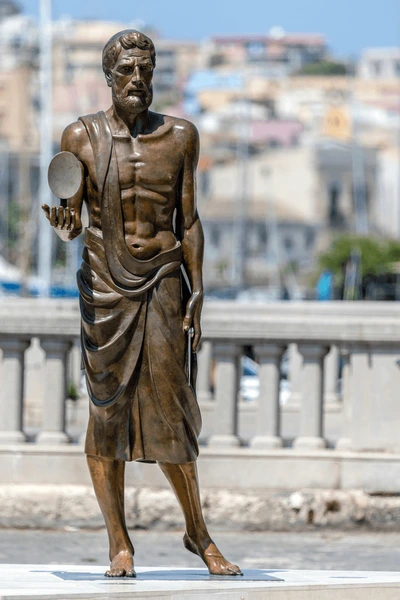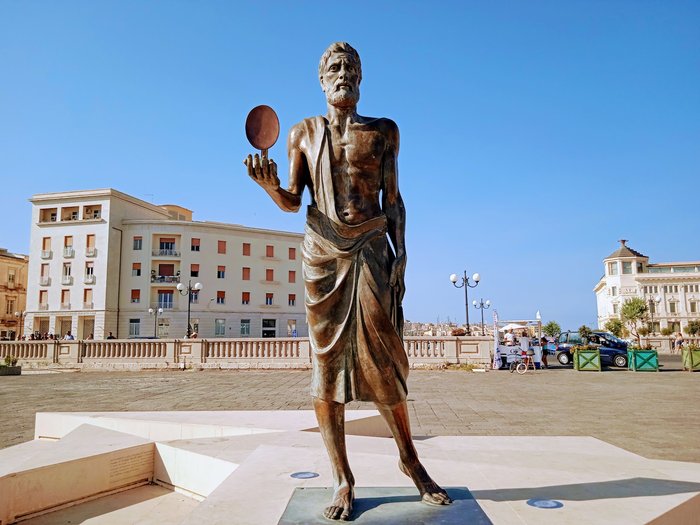Ancient Syracuse’s Pioneering Mathematical and Engineering Legacy of Archimedes

In the annals of history, few names shine as brightly as that of Archimedes, the brilliant polymath born in Syracuse around 287 BC. Emerging during the illustrious Hellenistic period, Archimedes etched his name into the fabric of human knowledge, leaving an indelible mark on both engineering and theoretical sciences.

Renowned for his ingenuity and inventive spirit, Archimedes gifted the world with a plethora of groundbreaking inventions, each a testament to his unparalleled genius. Among his most celebrated creations is the Archimedes screw, a marvel of engineering that revolutionized the transportation of water and remains in use to this day. This simple yet ingenious device, consisting of a helical screw within a cylindrical casing, enabled the efficient lifting of water for irrigation and drainage, thereby transforming agriculture and urban development.
But Archimedes’ contributions to human knowledge extended far beyond the realm of engineering. As a mathematician of unparalleled skill and insight, he delved into the mysteries of geometry, calculus, and hydrostatics, pioneering new methodologies and uncovering fundamental truths about the natural world.

One of his most enduring mathematical breakthroughs lies in the field of hydrostatics, where he formulated the principles governing the behavior of fluids at rest. By investigating the displacement of water, Archimedes developed a method for determining the volume of irregularly shaped objects—a concept now known as Archimedes’ principle. This foundational principle not only laid the groundwork for modern hydrodynamics but also revolutionized fields such as shipbuilding, buoyancy, and fluid mechanics.
Furthermore, Archimedes made significant advancements in the calculation of surface areas and volumes, devising innovative techniques that foreshadowed the development of integral calculus. His method of exhaustion, a precursor to the calculus of infinitesimals, provided a rigorous framework for approximating the areas and volumes of irregular shapes—a feat of mathematical sophistication unmatched in his time.

Yet, perhaps what sets Archimedes apart is not merely his technical prowess, but his relentless pursuit of knowledge and understanding. His legendary “Eureka!” moment, famously recounted as he leaped from his bath upon discovering the principle of buoyancy, encapsulates the spirit of discovery and innovation that defined his life’s work. With each new revelation, Archimedes peered into the depths of the unknown, pushing the boundaries of human understanding and inspiring generations of scholars and thinkers to come.
As we reflect on the legacy of Archimedes, we are reminded of the transformative power of human intellect and the enduring quest for knowledge that transcends time and place. In the words of the ancient philosopher Cicero, Archimedes was not merely a man, but “a mind of divine excellence.” His legacy serves as a beacon of inspiration for all who dare to dream, innovate, and explore the vast mysteries of the universe.










